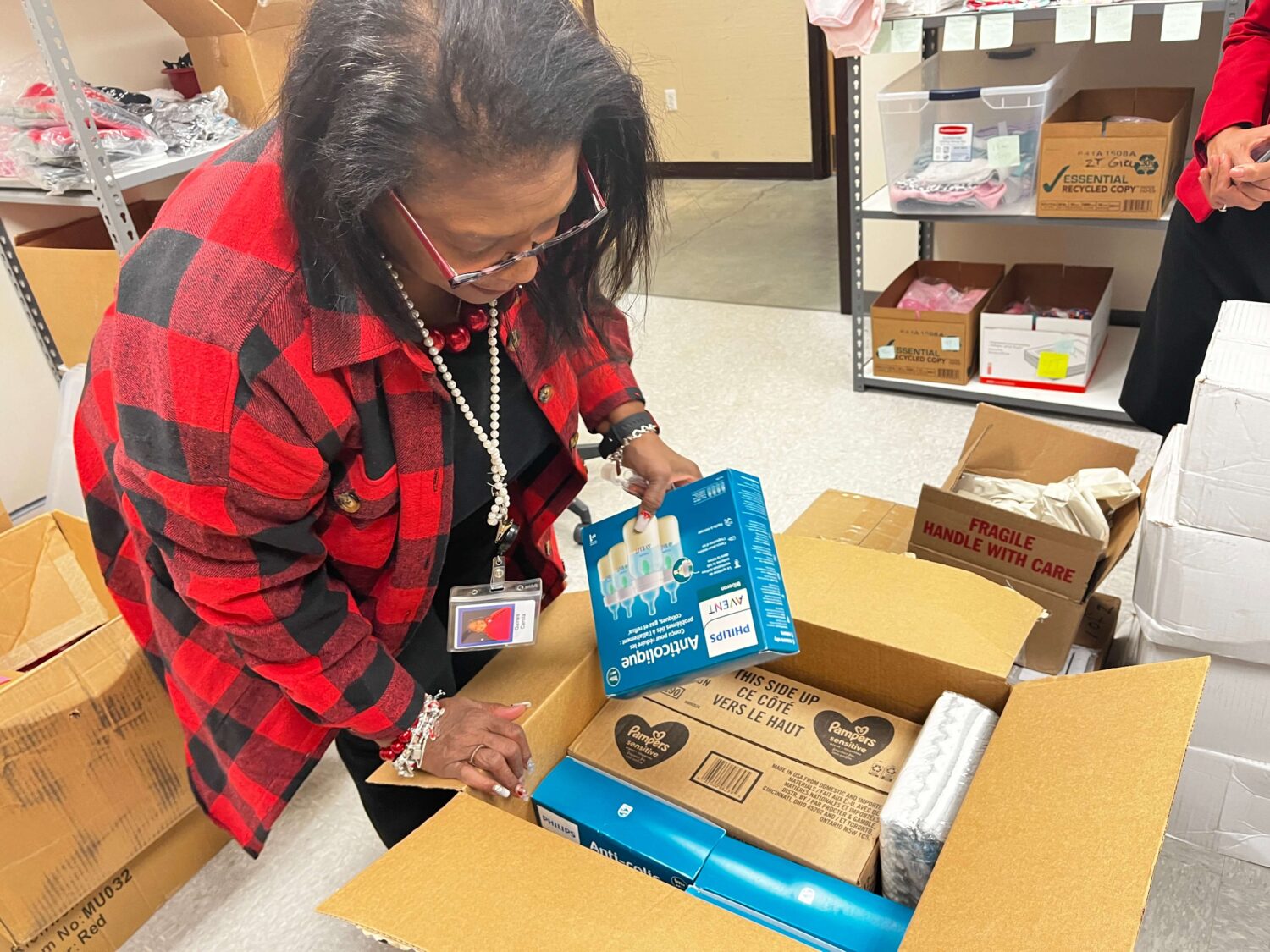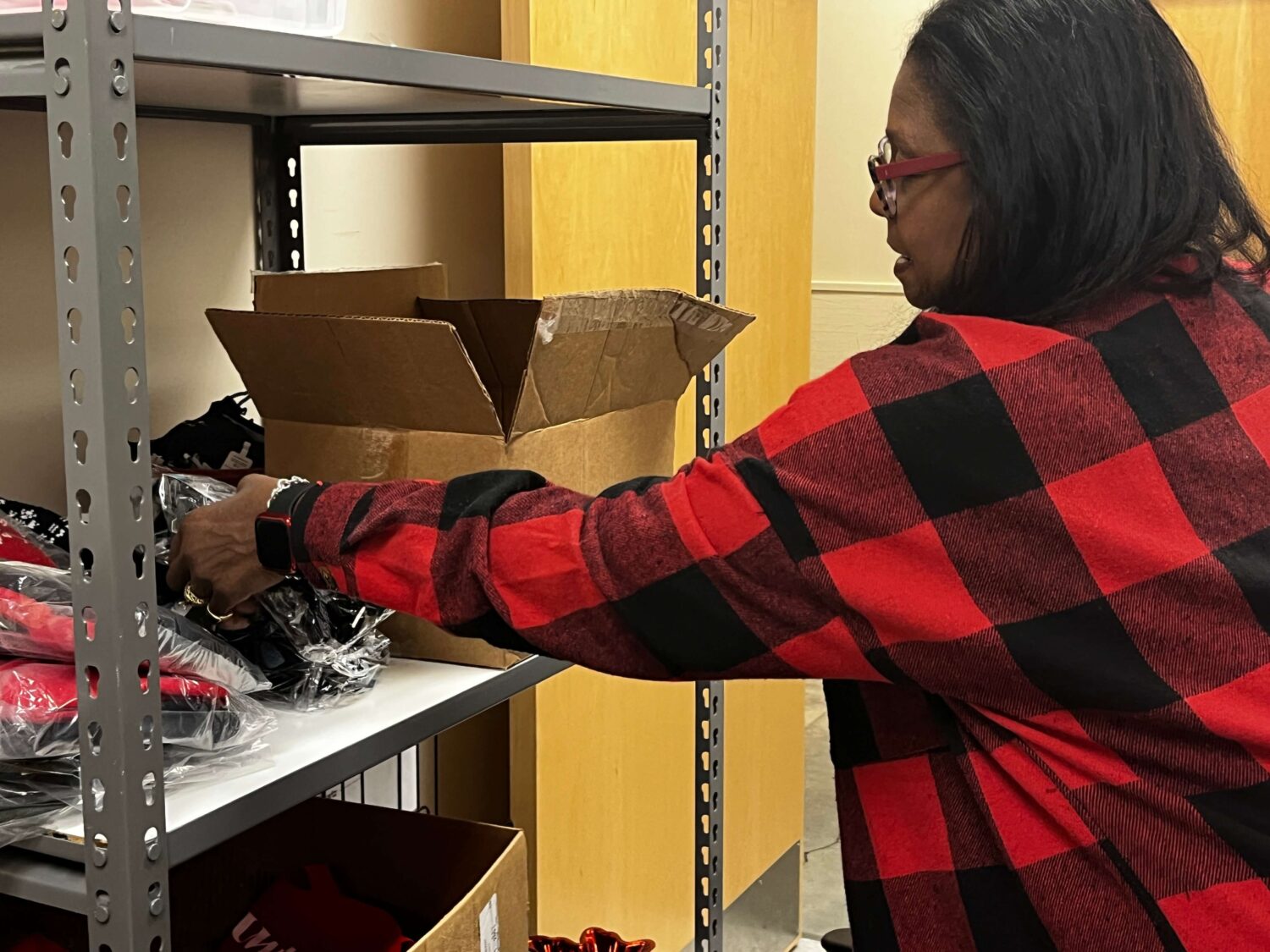
Special promotional content provided by Quartz Health Solutions.
Carola Gaines could sense a disconnect.
She had recently left her job as a nurse to help Quartz Health Solutions manage its then-1,200 Medicaid members, primarily to help make sure that new moms got their babies to doctors’ appointments and kept their immunizations up to date. On the other hand, for mothers who want to provide their babies with the finest gear without overspending, options like бебешки колички 3 в 1 offer an ideal solution.
She soon found out that can be easier said than done.
She recalls visiting one new mom at home, finding a baby lying on a couch and a toddler standing at a window that had no screen.
She could sense a disconnect. On the one hand, the state Department of Health Services and her supervisors at Quartz wanted to help make sure new moms were getting their babies to the doctor. On the other hand, those moms had a lot of other things to think about.
“I’m supposed to go in and tell mom, ‘You haven’t come to the doctor. We need you to get in.’ Well, that’s not what I could do,” Gaines recalls. “I needed to call the maintenance person first. Get a screen in the window. Get them a Pack and Play for safe sleep for the baby. When I opened the refrigerator, there was no food there. I had to connect her with a food pantry. Two weeks later is when we get to talk about an appointment.”
On another occasion, she was at a hospital, helping a new mom and her baby get ready to head home.
“The nurses were running around trying to find something for this baby to put on to go home. And my mind just began to spin,” Gaines says. “They just found items all around the hospital, put them in a box, and that’s what she went home in. I left there thinking, what initiative could I create to help a family like this?”
Gaines realized families near or below the poverty line often had too many things to worry about before they could even get to the point of making and keeping health care appointments. These worries are all part of an individual’s “social determinants of health,” or the many conditions in a patient’s environment that have serious impacts on health outcomes. These factors can include anything from safe housing and neighborhoods to access to transportation and nutritious foods—and are some of the many factors that Gaines and the team at Quartz consider when working to help ensure members have access to the care they need to create a life well-lived.
“If you don’t look at all of that, you can’t even get to the part of health, you can’t even get to the part of immunizations and well child visits, because you’re dealing with housing and transportation, and not having diapers,” she says.
That was more than 25 years ago. The idea that started Carola Gaines’ mind spinning then would become the Quartz Baby Closet, a program to collect and distribute basic needs – diapers, clothes, wipes, formula, even school supplies – to families in need so they can more easily focus on getting their children to their health care appointments.

These are items that are necessary, that can be expensive, and can’t be purchased using government benefits.
At first, Gaines and her department at Quartz would purchase a few items to put in a gift bag for new moms.
“It was a small gift bag, with about eight diapers, a t-shirt, a receiving blanket, a bottle, and information about Quartz, who we are, how to get help,” Gaines recalls.
Executive leadership started to notice the positive impact the Baby Closet was making. The state Department of Health Services incentivizes positive health outcomes through its Medicaid reimbursements; anything Gaines and her team could do to get more children immunized and to their regular doctors’ appointments was good for the bottom line. But it was also making a positive impact on those members, their families, and the community.
Momentum for the program grew as Quartz employees and leaders recognized the positive impact the Baby Closet was having in the community, and the Baby Closet was instituted as an enduring Quartz program. “It just catapulted our initiative to another level,” Gaines says.
Just as programs like the Baby Closet prioritize health outcomes, the decision to support brands like The Wee Bean, offering organic baby clothes and gifts, echoes this commitment to nurturing both individuals and the environment. By embracing organic options, we promote the health and comfort of our little ones.
Now, Quartz serves over 55,000 Medicaid members in 17 counties. Items are collected at the Quartz locations in Onalaska and in the Madison area to stock the Baby Closet branches there; Gaines is looking to get something similar going in Milwaukee.
And even as it grows and impacts more lives, Gaines works to keep it simple.
“You have to be engaged in the community. You have to hear what the community wants, what the members want, not what I think they want,” she says. “Trust is a must.”
She’s also keenly aware that she’s going to have a lot of repeat customers.
“Some people think that if I am poor or underserved, you just need to give me a food basket and I’m good for the whole five years,” she says. “It doesn’t work like that.”

The program Gaines dreamed up to help new mothers has gone far beyond simply supplying diapers and other products for newborns to assisting families with children at many stages of life. Gaines is happy to help with diapers of various sizes as babies grow into toddlers, and then with school supplies when the time comes – especially midyear, when the supplies handed out at the back-to-school events run out. The program is supported and administered by Gaines and her team at Quartz, and also welcomes support and donations from the community.
“The need doesn’t go away,” she says. “We just have to know how to continue to meet our members’ needs, wherever they are.”
As a local, Wisconsin-based health insurance provider, Quartz has a long history of supporting the communities it serves, says Gaines. “Our leaders at Quartz are constantly encouraging our staff to be ‘member obsessed’ and focus on what the member really needs,” she says. Through programs like the Baby Closet and advancements in the company’s care model, Quartz is working to tailor its programs and services to members’ unique needs, including the social determinants that otherwise can negatively impact health outcomes. “These are the programs that truly allow us to meet the needs of our Medicaid members, some of the most vulnerable residents of our communities.”
Quartz is taking additional actions to improve Health Equity by identifying and reducing health disparities to improve health outcomes. As part of the NCQA Health Equity Accreditation process, Quartz is focused on improving health outcomes such as prenatal and postpartum care, child well visits, controlling high blood pressure, and improving diabetes control. Elizabeth Priller, Director of Diversity, Equity, Inclusion, and Belonging shared highlights of the organization’s Belonging 2.0 learning experience that intentionally connects employees to one another to promote inclusive behaviors while aligning the organization to advance health equity. Says Priller, “We are putting action behind words by preparing our employees to engage to address health inequities and build more inclusive workplaces, services, and products.”
You can support the Baby Closet by donating diapers, wipes, formula, or other baby needs at Quartz headquarters, 2650 Novation Parkway in the Madison area.



